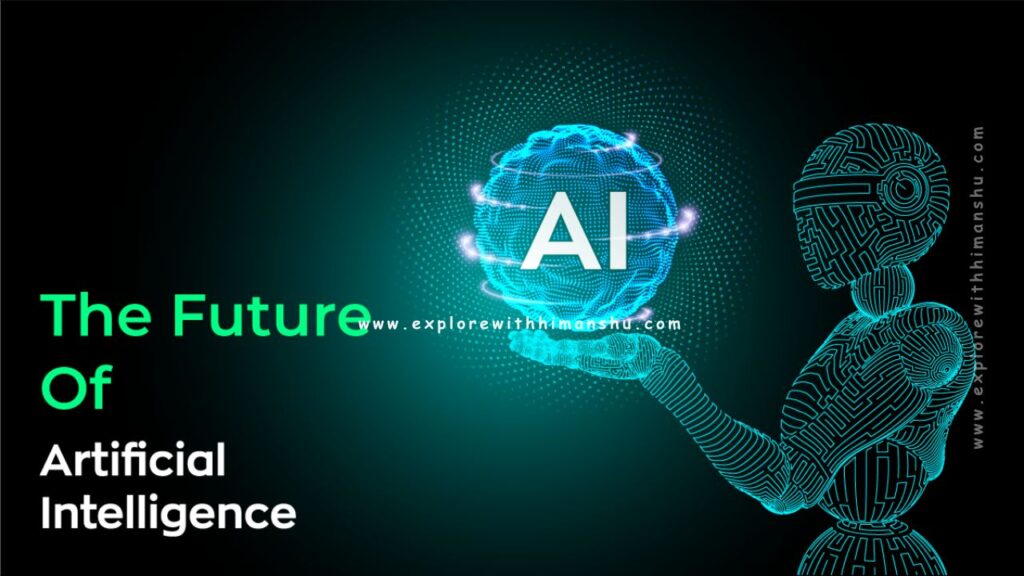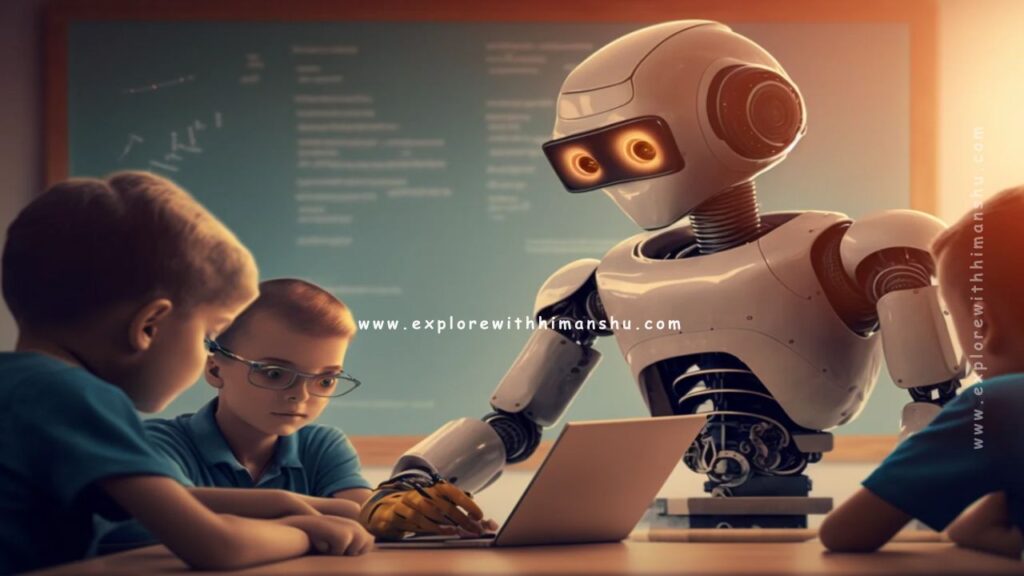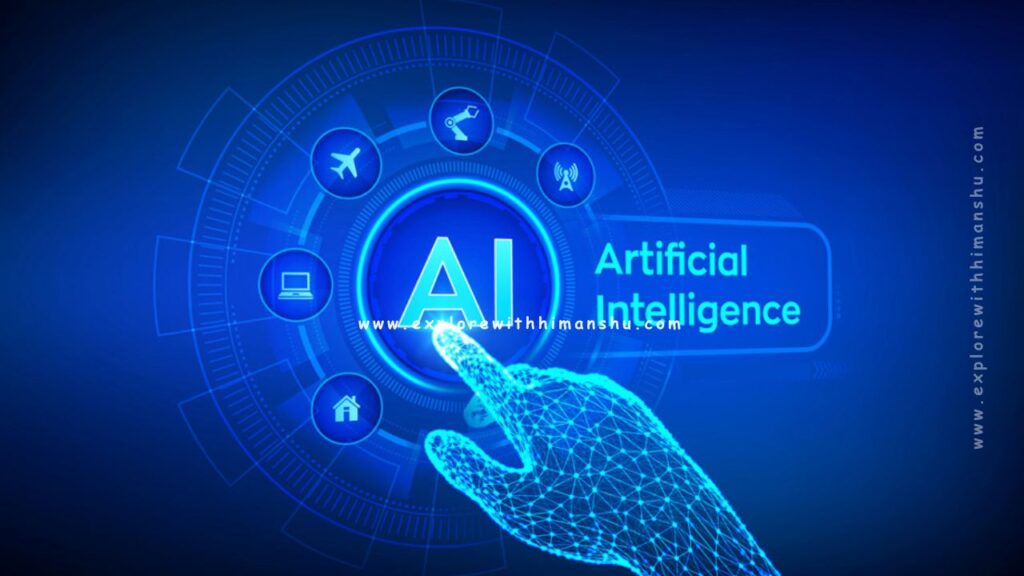Introduction :-
Artificial Intelligence (AI) is evolving at an unparalleled pace, impacting almost every company and reshaping the way we artwork, live, and have interaction with generation. From healthcare and finance to education and entertainment, AI-pushed upgrades are revolutionizing conventional industrial organisation fashions, improving usual performance, and unlocking new opportunities. As we step into 2025, the integration of AI into each day existence is predicted to broaden even in addition, making it vital to recognize its implications, advantages, and annoying conditions.
Explore the Future of AI in 2025 and how artificial intelligence is transforming industries like healthcare, finance, education, and transportation. Discover key trends, ethical concerns, and AI-driven innovations shaping the future.
In this blog, we will explore the latest trends in AI, how different industries are leveraging AI technologies, the potential risks and ethical concerns, and what the future holds for AI-driven advancements.

1. The Rise of AI in 2025: A Global Overview
1.1 AI’s Growth and Adoption Rate
AI adoption has surged in recent years, with businesses and governments investing billions in AI-powered solutions. According to market research, the global AI industry is projected to reach over $500 billion by 2025, fueled by advancements in machine learning, natural language processing, and robotics.
1.2 AI and Job Market Transformation
While AI automation has replaced certain repetitive tasks, it has also created new job roles such as AI trainers, data scientists, and AI ethics consultants. The key to future success lies in upskilling and reskilling the workforce to adapt to AI-driven economies.
1.3 Key AI Technologies Driving the Change
- Machine Learning (ML) and Deep Learning (DL)
- Natural Language Processing (NLP)
- AI-Powered Chatbots and Virtual Assistants
- Robotics and Automation
- AI in the Internet of Things (IoT)
2. AI in Healthcare: Revolutionizing Medical Treatment
2.1 AI-Powered Diagnosis and Medical Imaging
AI algorithms are now capable of detecting diseases such as cancer, diabetes, and heart conditions with higher accuracy than traditional diagnostic methods. AI-powered medical imaging tools analyze X-rays, MRIs, and CT scans, improving early detection and treatment.
2.2 AI and Personalized Medicine
AI-driven genetic research allows for personalized treatment plans based on a patient’s unique DNA profile. Precision medicine enhances patient outcomes by tailoring therapies to individual genetic markers.
2.3 Robotic Surgery and AI in Hospitals
Surgical robots, powered by AI, assist doctors in performing complex surgeries with enhanced precision. AI-driven hospital management systems streamline patient care, reduce waiting times, and optimize resource allocation.
AI Impact on Jobs: Future of Work and Career Changes by 2025
3. AI in Finance: Enhancing Efficiency and Security
3.1 AI in Fraud Detection and Cybersecurity
AI algorithms detect fraudulent transactions and cybersecurity threats by analyzing patterns and anomalies in financial data. Banks and financial institutions rely on AI-driven security systems to prevent cyber-attacks and data breaches.
3.2 AI-Powered Trading and Investment Strategies
AI-driven trading bots analyze market trends, predict stock movements, and execute trades at lightning speed. Hedge funds and investment firms use AI to optimize portfolios and manage risk.
3.3 AI in Banking and Customer Service
AI-powered chatbots handle customer queries, process transactions, and provide financial advice, enhancing customer service and reducing operational costs.

4. AI in Education: The Future of Learning
4.1 AI-Powered Virtual Tutors and Personalized Learning
AI-based education platforms adapt lessons to individual students’ learning styles, providing personalized tutoring and real-time feedback.
4.2 AI in Automated Grading and Assessment
AI automates grading processes, allowing educators to focus on teaching rather than administrative tasks. AI-driven assessment tools evaluate student performance and recommend improvement strategies.
4.3 AI and Language Learning
AI-powered language apps like Duolingo use NLP and ML to enhance language acquisition, making learning more interactive and engaging.
5. AI in Entertainment and Media: Changing the Creative Industry
5.1 AI-Generated Content and Virtual Influencers
AI creates music, art, and even entire movies. Virtual influencers, powered by AI, are gaining popularity on social media platforms.
5.2 AI in Video Streaming and Personalized Recommendations
AI-powered algorithms curate content recommendations on platforms like Netflix and YouTube based on user preferences and viewing habits.
5.3 Deepfake Technology: Ethical Concerns
While AI-generated deepfake videos have entertainment value, they also pose risks related to misinformation and privacy violations.
6. AI in Transportation and Smart Cities
6.1 Autonomous Vehicles and AI-Powered Traffic Management
AI-driven self-driving cars improve road safety and reduce traffic congestion. AI-based traffic management systems optimize signal timing and reroute traffic dynamically.
6.2 AI in Public Transport and Logistics
AI optimizes public transportation schedules, predicts delays, and enhances logistics efficiency in supply chain management.
6.3 Smart Cities and AI-Powered Urban Planning
AI analyzes urban data to improve city planning, reduce energy consumption, and enhance public safety through smart surveillance systems.
7. Ethical Concerns and Challenges of AI Development
7.1 AI Bias and Fairness Issues
AI models can inherit biases from training data, leading to discrimination in hiring, lending, and law enforcement.
7.2 AI and Data Privacy
With AI collecting vast amounts of personal data, concerns over data privacy and security are growing. Stricter regulations are needed to protect user information.
7.3 AI and Job Displacement
While AI creates new job opportunities, it also eliminates traditional roles, requiring governments and organizations to implement retraining programs.

8. The Future of AI: What to Expect Beyond 2025?
8.1 AI and Human Collaboration
The future of AI is not about replacing humans but enhancing their capabilities. AI will work alongside professionals in medicine, education, and other fields to improve productivity and decision-making.
8.2 AI Regulations and Ethical AI Development
Governments and tech companies are working towards AI regulations that ensure transparency, fairness, and responsible AI development.
8.3 The Role of AI in Sustainability
AI is being leveraged to tackle climate change by optimizing energy usage, reducing waste, and improving environmental conservation efforts.
Conclusion
Artificial Intelligence is shaping the future of industries and redefining the manner we work and live. While AI brings good sized improvements, it additionally affords demanding situations that ought to be addressed. The key to harnessing AI’s complete ability lies in moral AI improvement, regulatory frameworks, and continuous getting to know.
As AI continues to evolve, individuals and businesses must stay informed and adapt to emerging trends. Embracing AI-driven innovations while prioritizing ethical considerations will lead to a future of AI enhances human potential rather than replacing it.
What are your thoughts on AI’s impact in 2025? Share your opinions in the comments below! 🚀


